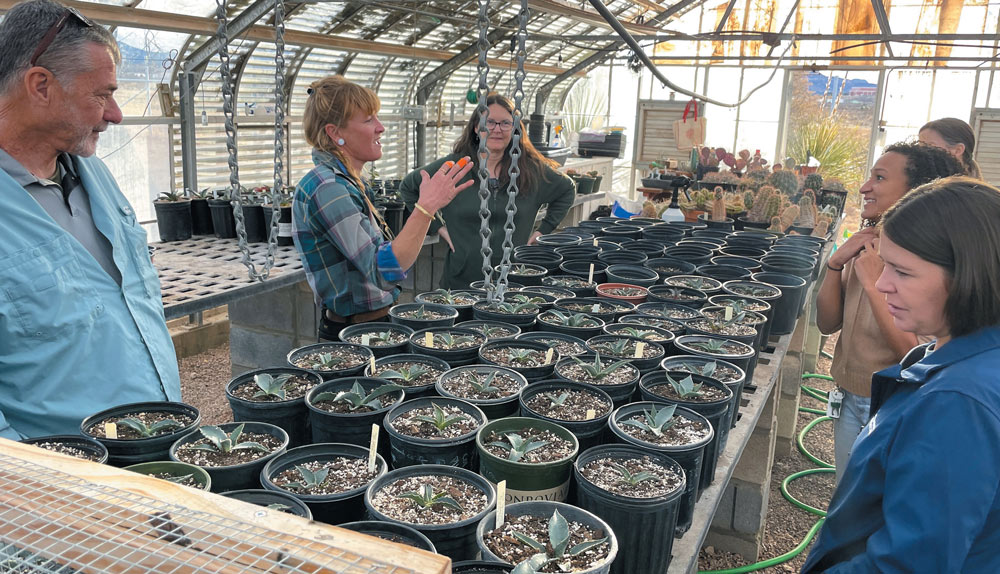

Beyond Borders
In early December 2023, the Northwest Mexico Agaves for Bats Summit convened in Hermosillo, Sonora, drawing representatives from 21 organizations. This gathering provided a platform for current and potential partners to exchange insights, discuss challenges, and explore avenues for collaboration on agave restoration and bat conservation. Among the attendees were organizations already profoundly engaged in BCI’s Agave Restoration Initiative and those eager to contribute to the initiative’s success.
During the Summit, discussions centered on identifying the conservation, restoration, and management needs of the environment and local communities. Participants used collaborative planning to form new partnerships and create innovative projects. These included initiatives to grow and plant agaves and other native species for restoration, capacity-building programs for sustainable agriculture and cattle ranching linked to habitat restoration, and knowledge-sharing exchanges between organized groups across different regions of Mexico. Work will maintain communication and momentum while implementing community-based, on-the-ground projects to further the partnership’s goals.
Meeting in Alpine
At the meeting, BCI provided updates on the progress of the Agave Restoration Initiative in Texas, outlining plans for the coming years. These include finalizing a Texas Agave Strategy to guide ongoing restoration efforts, engaging landowners in collaborative projects, identifying migratory corridors for Mexican long-nosed bats (Leptonycteris nivalis), and planting 1,000 native agaves in priority areas. The goal is to integrate agave restoration into state and federal landowner incentive programs, ensuring long-term sustainability and success.
Both gatherings underscored the importance of cross-border cooperation in addressing shared conservation challenges. BCI is facilitating these two regional networks, as well as the Northeast Mexico Agave Restoration Network, to enhance the long-term success of conservation efforts. By pooling resources, expertise, and enthusiasm, participants are driving forward a vision of sustainable landscape management that benefits both wildlife and communities. Through ongoing communication and on-the-ground action, the Agave Restoration Initiative continues to grow, fostering resilience and biodiversity across the region.
Securing the future of agave and bats
“Protecting migratory species like long-nosed bats requires coordinating action with diverse partners across large landscapes,” says Kristen Lear, Ph.D., BCI’s Agave Restoration Program Director. “These meetings allow us to set ambitious goals that would not be achievable alone.”